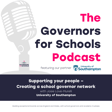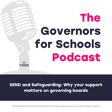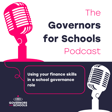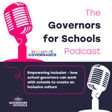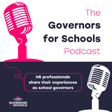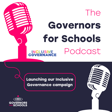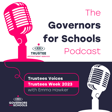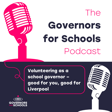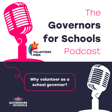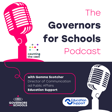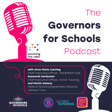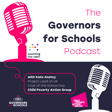
Representing every child - why experiences of neurodiversity and invisible disability matter on governing boards
In this episode, we explore the importance of raising awareness of invisible disabilities and neurodiversity in schools, the impact this can have on children and young people, and the unique perspective neurodivergent people can bring to school governing boards.
To discuss this topic, we’re joined by three passionate and knowledgeable voices - Chantal Boyle, Communications Manager at Hidden Disabilities Sunflower, Dr Claire Walsh, Chair of Governors (co-opted) and neurodiversity advocate, and Sue Blyth, Headteacher of Fourfields Community Primary School.
Read a transcript of this conversation: https://bit.ly/3UFi0Cn
Apply to become a school governor: https://bit.ly/43im7qz
Find out more about our Inclusive Governance campaign: https://bit.ly/3SYwk8A
Discover the Hidden Disabilities sunflower: https://bit.ly/3y3dtkn
Music by: Bensound.com/free-music-for-videos
License code: GGXDEC3OBQEGW4XO
